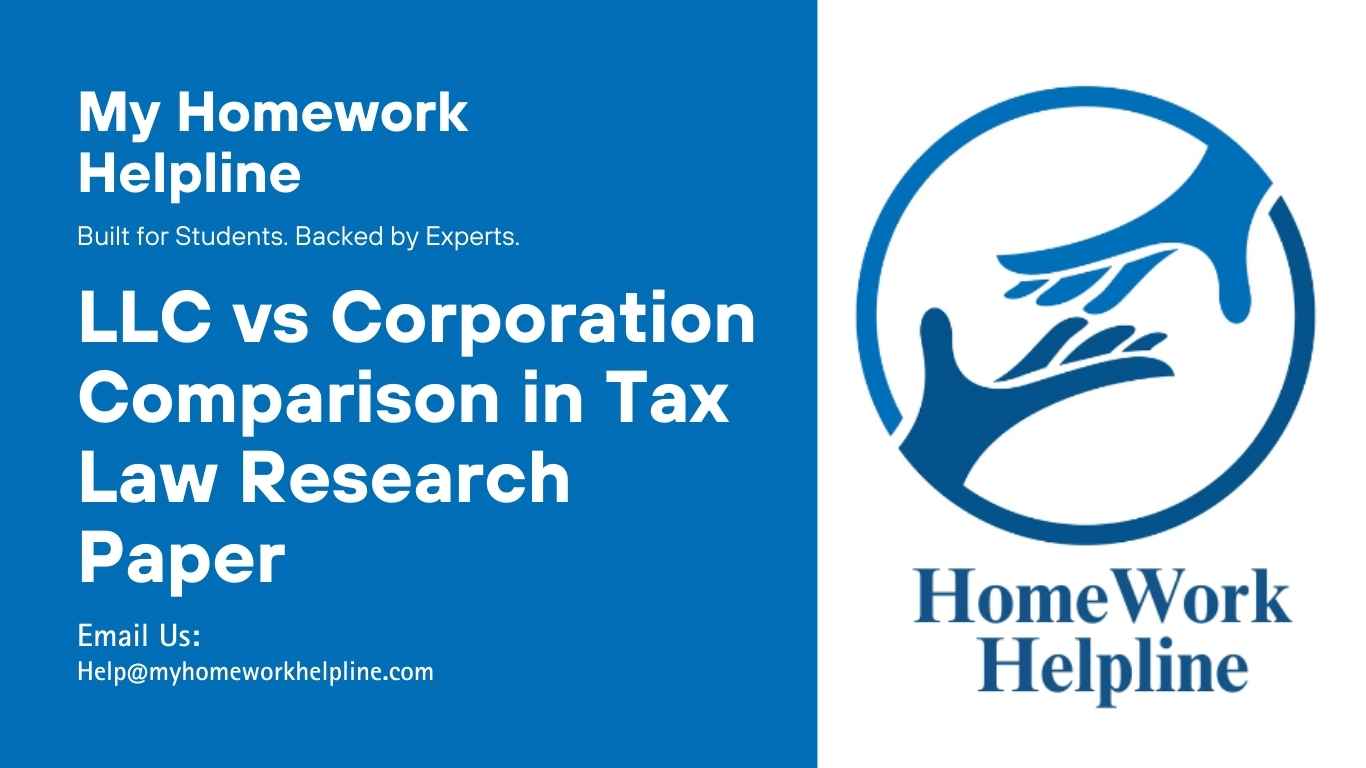LLC vs Corporation: A Tax Law Research Paper Analysis
Selecting a company structure is among the crucial considerations when starting a business since it defines personal liabilities and tax obligations. Usually, most business owners opt for a corporation or a Limited Liability Company (LLC). Despite some similarities between the two structures, there are some significant distinctions. The primary distinction between an LLC and a corporation is that individuals own an LLC, whereas shareholders own a corporation (Lofgren). Moreover, the LLC status has become prevalent among US businesses over the past two decades. Currently, there are around 21.6 million LLCs, compared to 1.7 million C-Corporations and 7.4 million S-corporations in the US (FLB Law). This paper will investigate some of the reasons for the growth of LLC status.
Need help perfecting your tax law research paper or business law assignment? With My Homework Helpline, you get expert guidance on complex topics like LLCs vs corporations. Our homework assistance service ensures your essays and papers are structured, clear, and academically strong. Whether tackling taxation, liability, or IRS regulations, we provide reliable support that strengthens your academic work and boosts confidence in your writing.
The first advantage of an LLC is its ease of formation. According to Edwards, a minimum of one owner must file Articles of Organization with the state to create an LLC. A corporation, on the other hand, is formed by submitting corporate organization paperwork, electing a board of directors, enacting bylaws, and then issuing company shares. An LLC is also more appealing because of its tax flexibility. Since the Internal Revenue Service (IRS) does not consider an LLC to be an autonomous entity for taxation, it provides additional flexibility (Edwards). Taxation options are available to members; they can be classified as a sole proprietorship, partnership, or corporation. An LLC’s most popular tax choice is sole proprietorship-style taxes. A member must pay taxes on the LLC’s earnings rather than the LLC paying the taxes. The revenues and losses of an LLC are distributed to the owner via the company and must subsequently be reported on the owner’s tax returns. The LLC essentially pays no corporate tax. This strategy prevents double taxation, which is one of the shortcomings of corporations (Lofgren). Hence, LLCs are widespread due to their simplicity and flexibility.
Works Cited
Edwards, John. “LLC Vs. Incorporation: Which Should I Choose?” Investopedia, Nov. 2022, www.investopedia.com/articles/personal-finance/011216/llc-vs-incorporation-inc-which-should-i-choose.asp.
FLB Law. “Is It Time to Think About an LLC for Your Business? | Fitzpatrick Lentz and Bubba.” Fitzpatrick Lentz &Amp; Bubba, 24 Mar. 2021, www.flblaw.com/is-it-time-to-think-about-an-llc-for-your-business/#:~:text=There%20are%20roughly%2021.6%20million,approximately%2023%20million%20sole%20proprietorships.
Lofgren, Lars. “LLC Vs. Corporation: Pros and Cons.” Quick Sprout, 22 July 2022, www.quicksprout.com/llc-vs-corporation.

